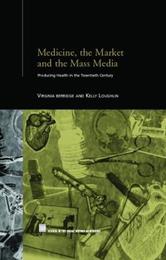
|
Medicine and Colonial Identity
Hardback
Main Details
Description
Individuals or groups define their identities in particular ways, choosing from a long list of social variables: nationality, class, race, gender, age, sexuality, occupation or marital status, all of which may change either by choice or fiat. Over the last century, the issue of identity has become increasingly important and yet it remains a problematic category of historical analysis. The historical record is full of diplomats and peasants discussing medicine and health concerns and topics which are significant to the study of medicine - professionalization, therapeutic choice, medical education and medical practice - topics which allow us to juxtapose a number of different strands of identity. This volume shows how the study of medicine can provide new insights into colonial identity and serve as a means to accommodate multiple perspectives on identity within a single narrative. An international range of contributors explore a variety of issues including the perceived self-identity of colonizers, the adoption of western and traditonal medicine as complemetary aspects of a new modern and nationalist identity, the creation of a modern identity of women in the colonies, the expression of a healer's identity by physicians of traditional medicine. Medicine and Colonial Identity will be of essential interest to those studying the history of medicine and will also be of value to social historians.
Author Biography
Mary P. Sutphen works as a consultant and is currently completing a book entitled Imperial Hygiene: Medicine and Public Health in the British Empire, 1880-1931, an analysis of the history of laboratory medicine in the British Empire. Bridie Andrews is an Assistant Professor at Harvard University. Her publications include The Making of Modern Chinese Medicine and an edited volume with Andrew Cunningham entitled Western Medicine as Contested Knowledge.
|